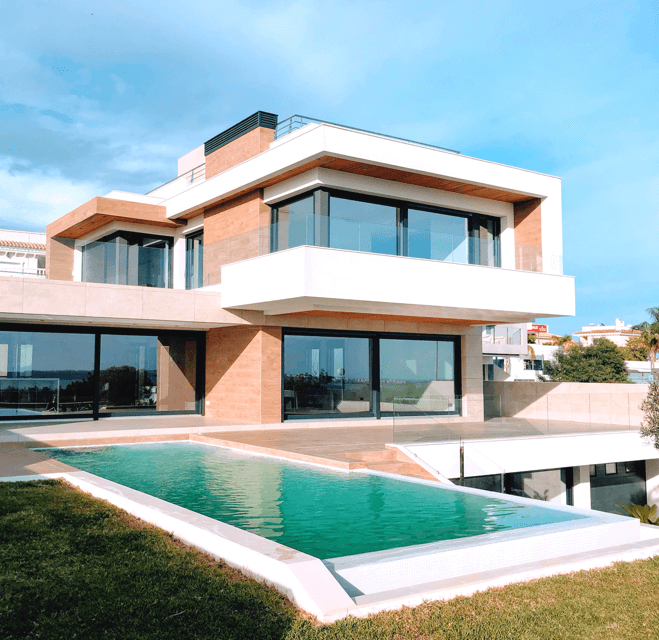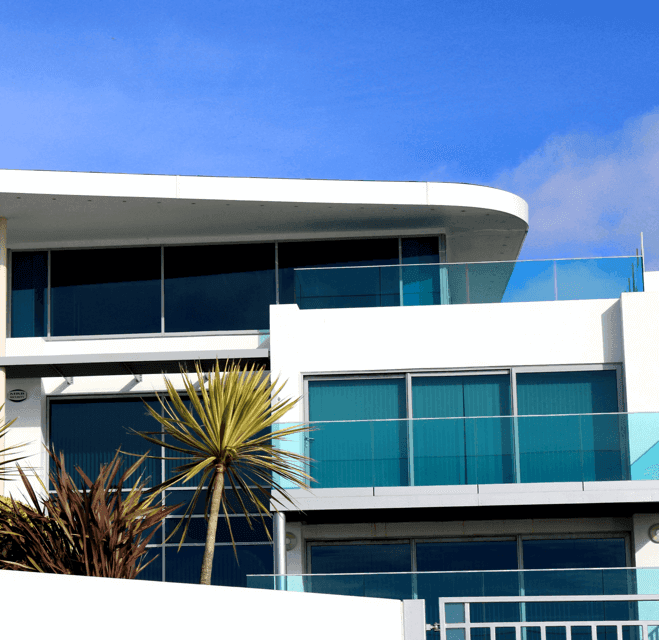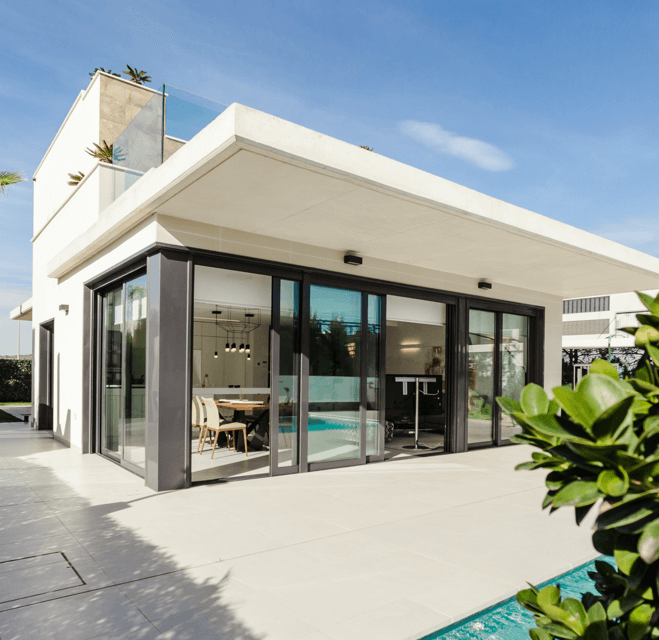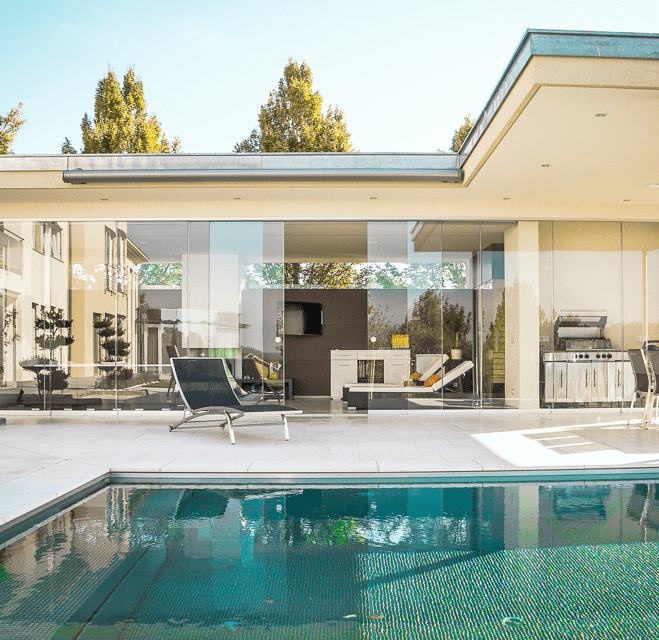Vastu Tips in Modern Interior Design
The convergence of Vastu Shastra principles and modern interior design has been a hallmark movement among sophisticated homeowners and businesses alike in Delhi NCR, reflecting an intelligent way of developing spaces that pay homage to ancient wisdom while enjoying modern functionality and esthetic sensibilities. This ancient Indian science of building design, which aims to harmonize human dwelling with natural forces and cosmic energy, provides timeless advice that is surprisingly apt in the modern fast-paced urban world where stress relief, productivity boost, and overall well-being have become the topmost issues for contemporary living and working spaces.
The growing demand for Vastu-compliant interior design reflects a deeper understanding that our physical environments significantly impact our mental, emotional, and spiritual well-being, making the selection of the Best Interior Designer in Delhi NCR who understands both traditional Vastu principles and contemporary design requirements essential for creating truly harmonious living and working environments. Creative professional interior designers who excel at achieving this integration can design spaces that not only are visually magnificent and operate effectively but also encourage beneficial energy flow, support occupant health, and facilitate personal and business achievement through intentional use of proven spatial configuration guidelines.

Contemporary Vastu application needs to be supported by advanced understanding of how ancient directional guidelines, element balance, and energy flow principles can be translated into modern architectural limitations, urban living scenarios, and contemporary lifestyle needs without compromising either visual attractiveness or functional effectiveness. This equilibrium calls for skills that go beyond rudimentary Vastu awareness to include creative problem-solving, innovative design solutions, and profound insight into how age-old principles can be used to extend rather than limit current interior design potential.
Comprehending Vastu Principles Today
The very basic principles of Vastu Shastra revolve around believing that every environment holds inherent patterns of energy that may be optimized by placing architectural objects, furniture arrangements, and design elements in a well-planned fashion in order to enhance harmony, prosperity, and happiness for the inhabitants. These philosophies identify five fundamental elements – earth, water, fire, air, and space – whose harmonious interaction develops conditions that facilitate physical well-being, mental acuity, emotional balance, and spiritual development while ensuring functional utility and beauty in compliance with modern way of life demands.
The directional relevance in Vastu gives structure to improving various areas of houses and workplaces based on their compass orientation, each direction being linked with specific deities, elements, and life aspects that impact occupant experiences and results. The eastern direction, which is under the control of the sun and linked with new beginnings, is best suited for prayer rooms, study space, and learning and spiritual practice areas, while the northern direction, which is connected with wealth and prosperity, becomes best suited for home offices, financial planning spaces, and areas where crucial business decisions are taken.
Professional application of Vastu rules demands recognition that city living today creates architectural limitations that render strict observance of traditional rules difficult, calling for innovative solutions and work-arounds that preserve the spiritual and functional essence of Vastu while being amenable to the realities of today like apartment dwelling, party walls, and pre-determined features of architecture that are non-negotiable. The Best Interior Designer in Delhi NCR formulates creative strategies that respect Vastu intentions within the constraints of existing structural conditions to design coherent spaces that facilitate occupant objectives and wellness.
Entrance and Foyer Design According to Vastu Guidelines
The entry of any house or office is of central significance in Vastu Shastra, as it is the first major entrance through which energy flows into the space and sets the opening impression and energy level for all other places within the property. Professional Vastu-compliant entrance design takes into account not just the physical location and orientation of doorways but also the visual aspects, lighting effects, and symbolic representations that meet occupants and visitors, generating inviting environments that welcome positive energy while repelling negative influences that might otherwise affect occupant well-being and achievement.
The Vastu-preferred entrance position prefers the northeast, north, or east directions, which correspond to auspicious energy flow and beneficial influence on occupant prosperity and spiritual advancement. But when structural constraints within existing architecture limit the best entrance placement, experienced interior designers utilize compensatory design principles like strategic mirror placement, effective lighting augmentation, and symbolic element inclusion that redirect and maximize energy flow even in the face of physical directional limitations that would otherwise compromise Vastu adherence.
Foyer and entryway interior design features such as flooring surfaces, wall finishes, lighting, and decorative accents have a large impact on the quality and direction of energy coming into the space, so these design choices are important to considerations of overall Vastu concordance and satisfaction. Natural materials, warm lighting, and inviting colors make good first impressions and facilitate positive energy flow, while sterile lighting, dark colors, or disordered arrangements can create negative energy buildup that influences the overall property’s atmospheric quality and experiences of occupants.
Living Room Arrangements for Optimal Energy Flow
The living room is the center of family interaction and socialization, which renders its Vastu-friendly positioning crucial in facilitating cordial relationships, successful communication, and good family relationships that contribute to overall household happiness and social achievement. Strategic placement of furniture based on Vastu principles ensures that seating positions, entertainment units, and decorative items collaborate to form energy patterns that promote relaxation, useful conversation, and emotional bonding between family members and visitors while retaining beauty appeal and functional convenience.
Vastu-compliant living room seating generally has the most substantial pieces of furniture against the south and west walls, ensuring stability and grounding energy and keeping the northeast region relatively bare to enable free energy circulation in the room. The head of the family or key decision-maker should have seating that faces towards the east or north if feasible, metaphorically aligning personal energy with directions related to wisdom, prosperity, and positive direction that benefit the overall household’s success and harmony.
Television and entertainment system placement requires careful consideration in Vastu-compliant living room design, as electronic devices generate electromagnetic fields that can disrupt natural energy flow if positioned inappropriately. The Best Interior Designer Delhi NCR knows how to combine state-of-the-art entertainment technology with Vastu principles using strategic location, proper shielding methods, and compensatory design elements that preserve both technological convenience and energetic balance within modern living spaces that are highly dependent on electronic communication and entertainment systems.
Kitchen Design Principles for Health and Prosperity
The kitchen is of special importance in Vastu Shastra as the area where the preparation of food directly influences family health, nutrition, and overall well-being, thus the correct design and layout of the kitchen are important for promoting physical energy, emotional contentment, and family prosperity. Classic Vastu rules for kitchen location prefer the southeast direction, ruled by Agni (fire element), which will obviously assist in cooking operations while also enhancing digestive health and nutrient absorption that all family members will enjoy in their day-to-day activities and long-term well-being.
Cooking orientation and location based on Vastu guidelines suggest that the main cook turn her/his back towards the east while cooking, symbolically tapping energy from the rising sun to impart positive vibrations and life-giving qualities to food to nourish body and spirit alike. Where east-facing cooking setups are not feasible due to architectural limitations, mirror placement, symbolic representation, or compensatory design elements are employed as a solution to redirect cooking energy appropriately in Vastu compliance and to ensure the well-being of the cook during cooking activities.
Storage and organization systems in the kitchen developed based on Vastu principles enable not only effective meal preparation but also abundance consciousness and food security awareness leading to household prosperity and resource management. Accurate storage placement, proper container choice, and systems of organized arrangement design kitchen spaces that support healthy eating practices, minimize food waste, and foster appreciation for nutritional richness in a manner that upholds the cleanliness and orderliness necessary to nurture physical health and beneficial energy accrual through the cooking and dining process.
Bedroom Arrangements for Rest and Relationships
Bedroom interior design based on Vastu principles is aimed at creating sleeping spaces that encourage restful sleep, intimate relationships, and personal rejuvenation and facilitate the physical, emotional, and spiritual restoration of the individual during rest times. Bed placement, color schemes, and supportive design features all collaborate to create sleeping spaces that improve the quality of sleep, reinforce personal relationships, and offer energetic rejuvenation for the energy required for work and overall life fulfillment.
Bed placement in Vastu-friendly bedrooms usually positions the headboard towards the south or west walls, enabling sleepers to sleep with their heads facing south or west, which is harmonious with natural magnetic fields and supports deeper and more recuperative sleep patterns. The direction of sleeping must not face towards the north, as per Vastu principles, which can interfere with natural flow of energy and affect sleep quality, health, and overall well-being over the long run due to regular misalignment with natural energy patterns.
Master bedroom design factors go beyond minimum furniture arrangement to include color psychology, lighting design, and symbolic element inclusion that promote romantic relationships, personal privacy, and intimate sharing of one’s life with a partner. Warm, comforting colors, gentle lighting choices, and combined decorative elements establish settings that promote emotional connection and relationship balance while preserving the serene environment for quality sleep and personal restoration that sustains overall life balance and fulfillment.
Home Office and Study Space Optimization
The growing popularity of remote work and home-based business operations has made Vastu-friendly home office planning a necessity than ever before to facilitate professional success, creative productivity, and career growth from home spaces. Thoughtful planning of work zones, proper arrangement of furniture, and facilitative design factors can greatly improve concentration, decision-making ability, and professional efficacy while designing spaces that are capable of disconnecting work activities from personal life without needing entirely independent physical zones.
Desk positioning per Vastu principles has the main working surface so users sit facing north or east as they work, directions with wisdom, creativity, and prosperity that facilitate professional accomplishment and intellectual success. The seat should have firm support, ideally against a south or west wall, providing stability and support for significant decisions and demanding work tasks and having open sight lines to doors and windows that offer natural light and energy flow.
Technology integration in Vastu-friendly home offices must be approached with thoughtful placement of electronic devices, cable organization, and electromagnetic field reduction that ensures functional effectiveness as well as energetic balance within defined work areas. The Best Interior Designer in Delhi NCR is aware of how to design technology-saturated work areas that facilitate contemporary business needs without violating Vastu principles through judicious positioning, suitable shielding, and aesthetic design features that enhance both professional productivity and individual well-being during prolonged periods of work.
Bathroom and Water Element Control
Bathroom design on Vastu principles necessitates extra care in terms of management of the water element, direction of drainage, and fixture orientation that does not allow negative energy to accumulate but still provides the hygiene and function needed for contemporary sanitation needs. Conventionally, Vastu advises bathroom locations in northwest or southeast directions of houses and away from northeast corners, which are sacred and must be kept unobstructed and clean to enable positive energy circulation all over the property.
Toilet and fixture direction in bathrooms must take into account practical functionality as well as optimal energy flow, with toilet seats oriented away from north or east directions if possible, while ensuring proper privacy and accessibility for everyone within the household. Effective use of mirrors, proper lighting, and ventilation systems can enhance practical functionality as well as energetic quality of bathroom spaces while taking care of moisture control and odor management impacting immediate user comfort and overall household atmospheric quality.
Water drainage and plumbing considerations in Vastu-compliant bathroom design ensure that wastewater flows toward the northwest, southwest, or southeast directions, preventing negative energy accumulation and supporting overall household energy balance. Professional installation and design coordination ensure that practical plumbing requirements align with Vastu recommendations while maintaining building code compliance and long-term system reliability that prevents costly repairs and maintains optimal functionality throughout the bathroom’s service life.
Color Psychology and Vastu-Compliant Interior Design
Vastu-compliant interior color choice merges ancient insight into color energy with contemporary knowledge of color psychology to develop environments that promote desired objectives, emotions, and activities while also possessing aesthetic attractiveness and design harmony across interconnecting rooms. Various colors possess unique energetic characteristics and psychological impacts that can complement or negate desired space uses and hence intentional color deployment is required to fulfill both Vastu compliance and modern design success.
Directional color relationships in Vastu offer suggestions for proper color choice depending on room orientation and desired use, with eastern spaces responding to green and light blue colors that favor new starts and expansion and southern spaces appreciating red and orange colors that foster activity and energy. Modern color use, however, necessitates bridging the old associations with personal taste, current architectural features, and current design sensibilities that encompasses the present lifestyle and sensibilities.
Color harmony across interconnected spaces should both visually flow and energetically harmonize, with color changes between areas serving to enhance overall design unity and energy flow patterns, not compromise them. The Best Interior Designer in Delhi NCR creates holistic color palettes that respect Vastu principles yet design complex, modern spaces that express individuality and promote desired lifestyle goals through careful use of color psychology and age-old wisdom.
Modern Furniture Choice and Placement Strategies
Today’s furniture choice for Vastu-friendly interiors involves reconciling ancient placement principles with contemporary functional needs, stylistic inclinations, and spatial limitations typical of urban life in the Delhi NCR region. Thoughtful furniture placement plays a vital role in optimizing energy flow, facilitating certain activities, and designing tranquil environments conducive to health while ensuring the style and functionality that urban lifestyles exact from domestic and business interior spaces.
Material choice for Vastu-friendly furniture takes into account both energetic attributes and functional performance qualities, with natural materials like wood, stone, and organic fibers tending to be used over synthetic options that can interfere with natural energy flows. Yet current furniture needs frequently require the inclusion of modern materials and technologies that ensure strength, comfort, and function yet preserve energetic balance through thoughtful selection and placement in accordance with Vastu principles without compromising modern convenience and beauty.
Furniture organization patterns that facilitate positive energy circulation while accepting contemporary living needs frequently present innovative solutions that mesh within prevailing architectural limitations while maximizing both function and energetic compatibility. Experienced designers create personalized arrangement plans that maximize efficiency in space, facilitate intended use, and foster positive energy circulation while sustaining the visual attractiveness and functional usability that contemporary home dwellers demand from their furniture investments and spatial alignments.
Expert Implementation and Professional Guidance
Successful application of Vastu principles to modern interior design involves professional skill that goes well beyond minimal traditional knowledge into innovative problem-solving strategies, adaptative techniques, and profound insight into how ancient wisdom can be used to enhance modern living without introducing impractical restrictions or aesthetic compromises. Professional practitioners who specialize in this integration give useful guidance leading clients toward both traditional conformity and modern gratification in the form of thoughtful, creative design solutions.
The Vastu-compliant interior design consultancy process is generally initiated by thorough space analysis, client goal evaluation, and conventional principle assessment that reveals scope and limitations in applying Vastu principles within current architectural realities and lifestyle needs. Analysis forms the basis for conceptualization of design strategies that pay respect to traditional values with consideration for modern requirements, tastes, and pragmatic barriers influencing implementation success and long-term satisfaction.
Project implementation coordination provides that Vastu-compliant design components are incorporated naturally with modern aesthetics, functionality, and practical demands without sacrificing traditional compliance and contributing to desired outcomes for occupant well-being and success. The Best Interior Designer in Delhi NCR oversees every aspect of implementation while offering continuous consultation and adjustment assistance that provides maximum results and ongoing satisfaction with Vastu-enhanced living and working spaces.
Conclusion: Designing Peaceful Contemporary Spaces with Ancient Insights
The marriage of Vastu Shastra principles with modern interior design is an advanced methodology for designing spaces that accommodate both traditional values and the needs of modern lifestyles while enhancing occupant well-being, success, and happiness through careful application of proven intelligence. This marriage can only be accomplished through professional services that comprehend both ancient principles and modern design needs, so choosing experienced interior designers is necessary to realize the best outcomes that respect tradition and incorporate innovation.
The advantages of Vastu-conforming interior design go beyond spiritual and customary concern to include practical enhancements in the functionality of space, comfort for occupants, and quality of life in general that are worth investing in professional services and judicious application of traditional precepts in modern settings. Such advantages are more valuable as urban dwelling conditions generate more necessity for spaces that foster well-being, diminish anxiety, and induce beneficial results for personal and professional endeavors.
The future of interior design that is Vastu-integrated keeps changing as expert designers keep coming up with more advanced ways of translating ancient wisdom to meet modern architectural situations, lifestyle needs, and tastes without sacrificing the fundamental principles making Vastu advice worth adopting for contemporary living. The Best Interior Designer in Delhi NCR keeps up with the advancements while offering clients inspiring solutions that build genuine harmony that fosters traditional values as well as modern achievement.




